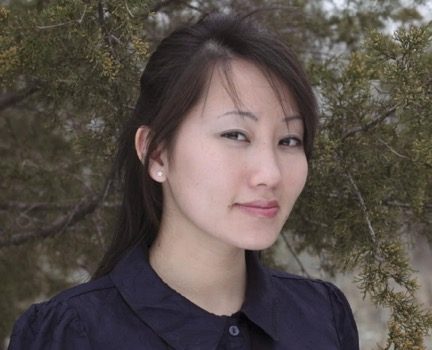Today, the Miscellany checks in with Kao Kalia Yang (’03), who will return to Carleton next year to teach classes on creative writing and writing memoir. Read about Yang’s recently published memoir The Song Poet here.

What memories from your time at Carleton stand out to you?
I have a clear memory of my first visit to Carleton as a prospective student. It was early morning, a gray, autumn day. I was on my way to admissions for an interview. Small flakes of snow fell from the heavy clouds. A cold wind blew. There were a couple of students, a boy in a pair of cargo shorts, Birkenstock sandals, and a hoodie bowed low beneath the weight of the books in his bag, a girl in a long skirt, a thick woven sweater with pockets across the front, her hands hidden in them. I had just spent my first night in a college dorm room. A selective mute, I had not made any friends the night before with other visiting students. I was lonely. There was an air of loneliness across the campus. In that aloneness, I felt I belong.
What role has writing and literature played in your life?
I had spent the first six years of my life in a refugee camp in Thailand. Suicide had been the number one cause of death. People were dying around me all the time. I was afraid. The moment I knew how to put sentences on the page, I started writing scary stories where people died and came back to life, sometimes gently but mostly not. These scary stories were my first attempt to exorcise the ghosts that lived inside of me (then I believed exorcism was possible), the things that haunted me. I still write of these things. As I’ve grown and experienced more of life, the things that I cannot forget have shifted, changed, transformed. I write as a way of reckoning with life; I read to sustain my ideas and my experiences, myself.
In other interviews you talked a lot about how language has shaped your decision to write. What is the importance of language to you, and how do you think this affects your writing?
I come from a people that is relatively new to the written language (it was not until 1950s that a French missionary devised a written script for the Hmong in the high mountains of Laos). Without the benefit of written words, we’ve had to pay close attention to the words we speak. I come from a family, a people, who approach words with gravity. Words are not only clues into our hearts and our souls, they are the call for spirits to come home, the anchor in a world where reality floats. I like the sound of words. I’m not a trained poet but the way I understand language is poetic by nature of the language that lives in my home. To my father, the sky is never cloudy. The cloud flowers are blossoming. To my uncle Chue, a freckle across the skin of his arm is a sky, a lake, the carcass of an elephant, the remnants of a burnt field. The way they communicate is my first introduction to my love of language, my heart for home; I write in search of what I find in their laps, safe in their holds, transient I know because of the nature of life. Language for me is a matter of living with those I love.
What advice would you give to young aspiring writers?
Write your truths, the truths the world can’t see, the truths the world chooses not to see; at the very least, it will help you gain clarity for who you are and why you exist.
What can students expect from your classes next year?
Care and compassion. They have to come prepared to be honest in their approach and work hard to understand themselves and each other. Students should know that I’m persistent so expect high passion from me. Most importantly, they can expect to be in an environment where language is not always flawless but it always tries to do good by those in its hold.
And lastly, what are you currently reading?
I am in the thick of Neal Schusterman’s Challenger Deep (a young adult narrative), Joby Warrick’s Black Flags: The Rise of Isis (a new Pulitzer Award Winning book), and Rupi Kaur’s Milk and Honey.